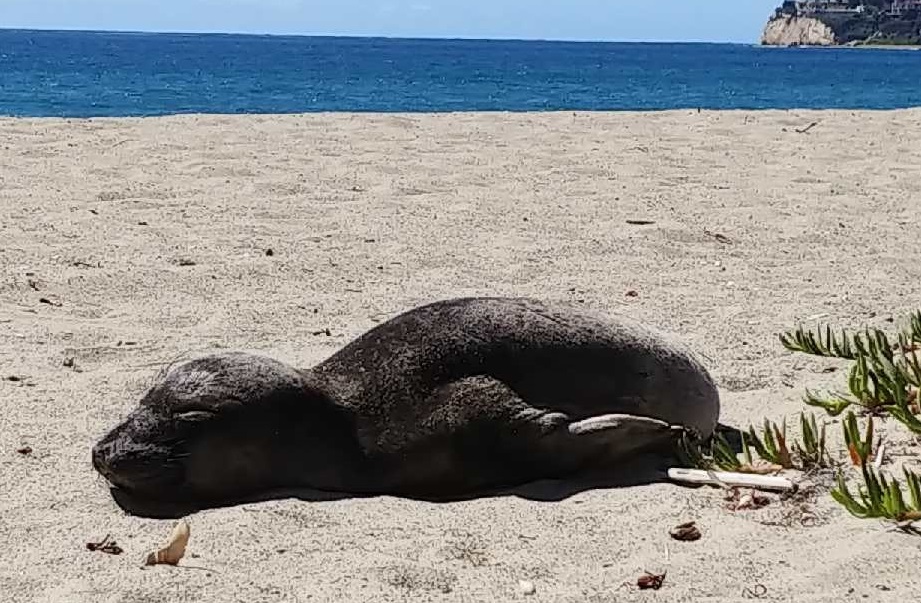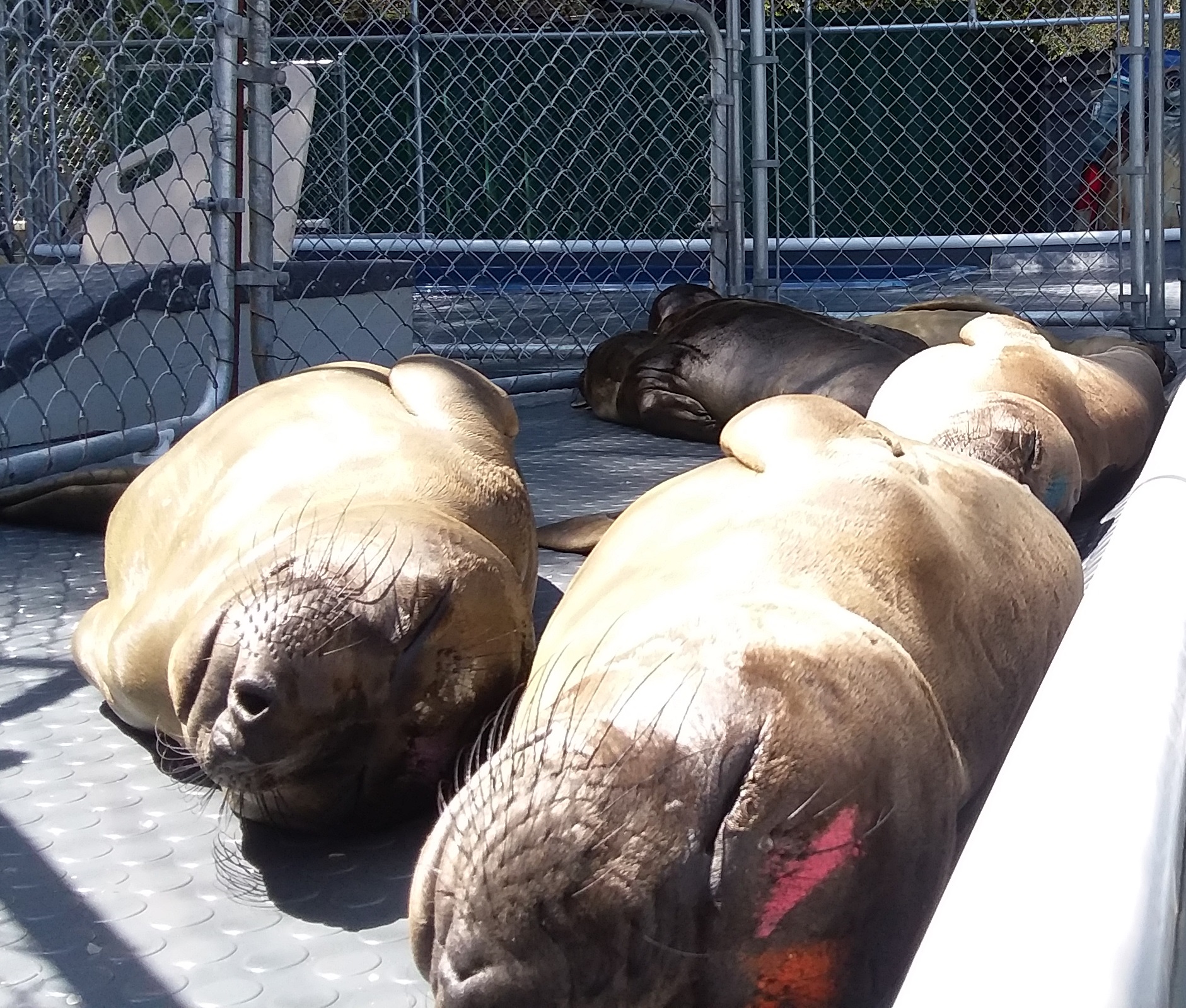By Heather Henderson, Stranding Coordinator

Elephant Seal pups have been stranding on Malibu beaches
Photo by Elizabeth Jimenez
Each March and May, newly weaned Northern Elephant Seal pups haul out along our coastline, many in need of assistnace to thrive. As rehabbers, we don’t know how many to expect, or in what condition the pups will arrive.
This year the stranding season in Malibu started a week later than usual, with the first patient arriving on March 5th; naturally we wondered whether 2018 was going to be a slow season for elephant rescues. By the following week, is was clear this was not to be, as reports from the public streamed in. To date, our marine mammal team has responded to 50 stranded Elephant Seal pups.
Elephant Seals are abruptly weaned after nursing for only one short month. During this month, the pup will more than triple in size, generally weighing between 200-300 pounds when weaned. This rapid growth is due to the high fat content (up to 55%) of the Elephant Seal mother’s milk. Once on their own, the pups rely entirely on instinct, having learned none of the skills they will need for survival from their mother. As the head out into the Pacific Ocean, their time will mostly be spent swimming and foraging.

Elephant Seals are rehabilitated at CWC
Photo by Heather Patrice Brown
If Elephant Seal pups fail to thrive on their own in the ocean, they may beach themselves. The majority of Elephant Seal calls we respond to are beached, malmourished pups. Many have diminished to, or below, the average birth weight. The most extremely malnourished patient so far this season was rescued at just 55 pounds. Additionally, they may present with pre-existing injuries such as cookie cutter shark bites, stingray barb punctures, internal parasitic infections, and surface abrasions.
If you find a stranded seal, call your local marine mammal rescue center and give the animal plenty of space. Keep people and dogs at least 50 feet away. Avoid pushing the animals back into the water or dousing him or her with water as this will further harm a debilitated seal. By following these guidelines, you improve the seal’s chance of survival and keep both humans and animals safe!
CWC Rescue Hotline: (310) 458-9453, option 1 for Marine Mammals
